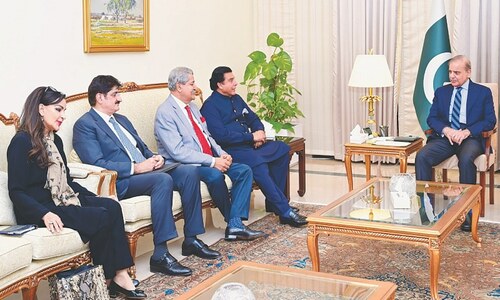ISLAMABAD, Oct 7: It is the vulnerability of people and institutional incapacity of states that turn hazards into disasters.
This was observed by speakers at the launching ceremony of South Asia Disaster Report 2005 titled “Tackling tides and tremors.” The ceremony was organised by South Asia Free Media Association (Safma), Rural Development Policy Institute (RDPI) and Practical Action South Asia Programme at SAFMA Media Centre on Saturday.
Stressing the need for an effective disaster management system, they said “hazard is natural, but disaster is not”.
Raja Yaseen, adviser to AJK prime minister, said that given the enormity of the disaster in AJK and NWFP, some gaps in management were unavoidable; however, the overall situation in the quake-hit areas was under control.
Ashfaq Saleem Mirza, a renowned analyst, said the report touched upon the social dimensions of disasters while focusing on tsunami, earthquake, and flood in Mumbai. “Writers of the report are fully conscious of the fact that the societies in which economic disparity reigns supreme, the interests of upper classes and marginalised sections of population are diametrically opposed,” he said.
Fayyaz Baqir, senior adviser to UNDP representative, noted that the report underlined the gaps and overlaps in existing governance patterns and management regime which increased in the possibility of victimhood of hazard-prone communities in South Asia. There are illiterates who are more rational and there are literates who happened to be irrational, he said. This report was a reminder to the literate and educated policy makers who tend to act irrationally while treating with disasters, he added.
Naunehal Shah, policy adviser, disaster risk reduction of the UNDP said the establishment of Erra, Perra and Serra in the aftermath of earthquake was a grim reminder of institutional neglect on disaster preparedness.
Amjad Bhatti, coordinating editor of the report, explained the process as how researchers from across South Asia contributed in the report to develop a regional perspective on disaster risk reduction. He said the word ‘beneficiary’ used for disaster affected people amounted to the disrespect of communities. “They are the rightful claimants not beneficiaries, he said. Exploring the linkages between development and disasters, he said there was no neutral development in the world.














































Dear visitor, the comments section is undergoing an overhaul and will return soon.